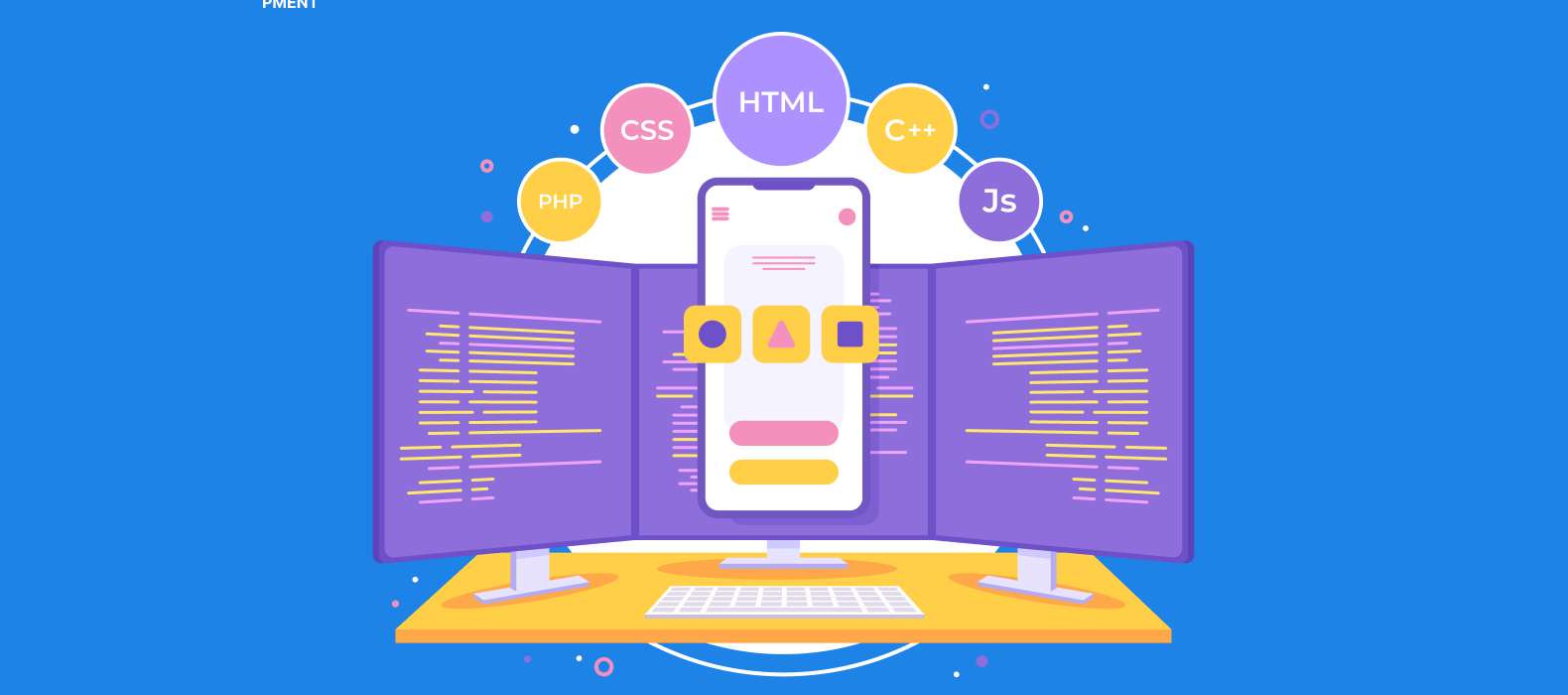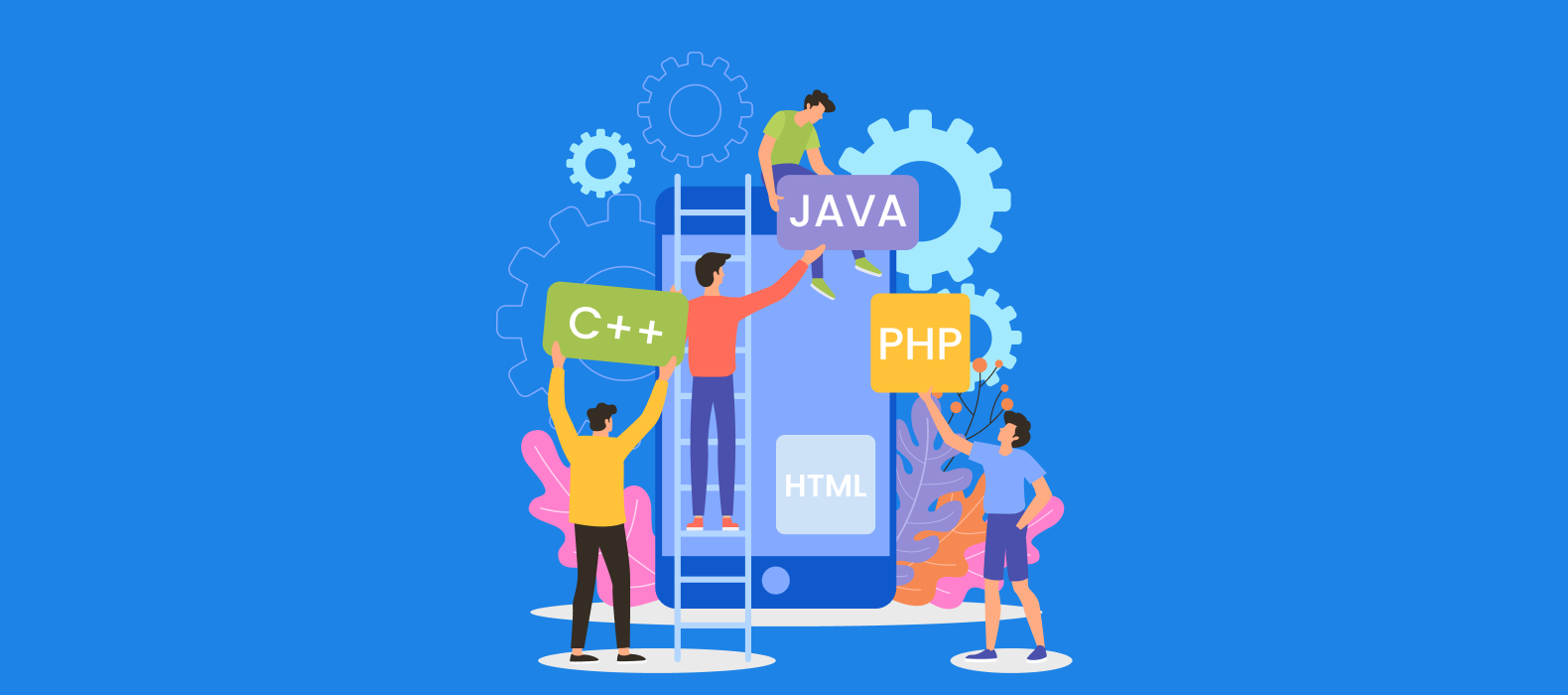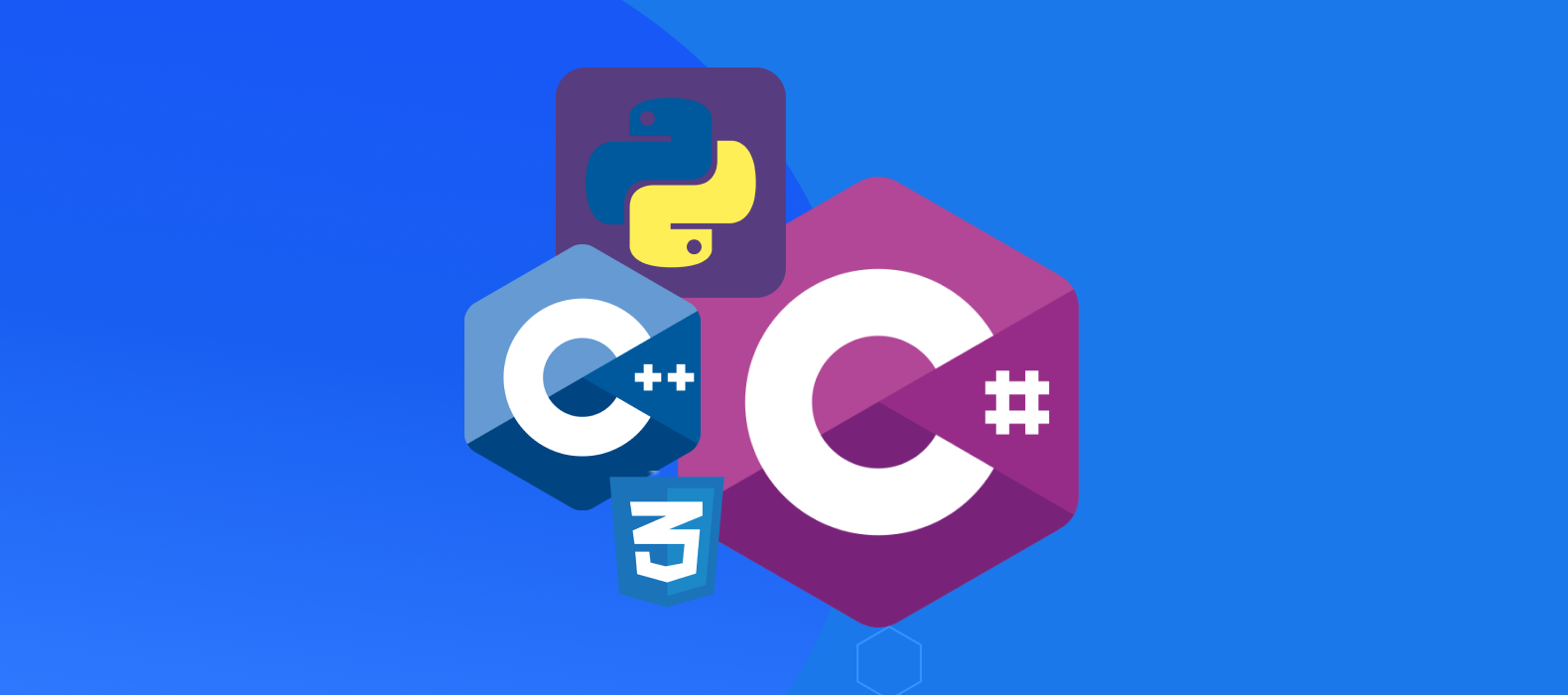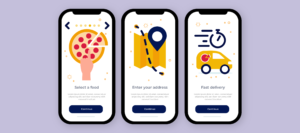Think for a moment about how frequently you use an app each day. It’s more than once, isn’t it? In fact, there is likely an app in your app store waiting to be found for every conceivable human need. Consequently, it should come as no surprise that since the development of the smartphone, demand for mobile applications has been steadily increasing.
According to a Statista report, there were more than 6.5 billion smartphone users worldwide at the end of 2022. Now, as the number of cell phones increases, so are the number of mobile apps. In addition to the rise in mobile applications, technology, functionality, security, and capabilities have all improved. The increased competition is also increasing the drive to create apps that are more accessible and efficient.
To make this possible, the finest language for mobile app development that is utilized in developing smartphone apps witnessed technological changes. More than 700 mobile app development languages exist today, especially in the era of low-code frameworks for app development, and developers use these languages and experiment to pave the route for their success. These programming languages can provide what low-code app development frameworks cannot, such as feature customization and user interface customization, among other benefits.
It’s time to discuss the most used programming languages for creating mobile applications. Do these app programming languages differ from those used for designing and developing other products? Let’s have a look at them.
What Factors Must be Taken into Account When Deciding the Best Mobile App Development Language?

The choice of language should be based on careful consideration of these factors and the specific needs and requirements of the mobile app being developed. When deciding the best language for mobile app development, several factors should be taken into account, including:
- Platform: The choice of language may be influenced by the platform for which the app is being developed. For example, Swift is the preferred language for iOS app development, while Java and Kotlin are used for Android app development.
- Developer Skills: The development team’s expertise should also be considered. If the team has experience in a particular language, using that language for app development may be more efficient.
- Performance: The performance requirements of the app should also be considered. Some languages, such as C++ and Rust, are known for their high performance and may be more suitable for performance-intensive apps.
- Time and Budget: The time and budget available for app development may also influence the choice of language. Some language for mobile app development, such as Python and Ruby, are known for their rapid development capabilities, while others may require more time and resources.
- Community Support: The availability of resources and support within the developer community is also an important factor to consider. Languages with large and active communities, such as Java and JavaScript, may be easier to work with and offer more resources and support.
- Third-Party Libraries and Frameworks: The availability of third-party libraries and frameworks can also impact the choice of language. Some languages have a wide range of libraries and frameworks, which can speed up development and improve functionality.
- Future Maintenance: The app’s long-term maintenance and scalability should also be considered when choosing a language. Some languages may be easier to maintain and scale over time, while others may require more resources and effort for maintenance and updates.
Top 20 Languages For Mobile App Development

Several programming languages can be used for mobile app development, each with advantages and disadvantages. Here are some of the most popular language for mobile app development:
| Languages | Popularity |
Advantages |
Disadvantages |
| Java | High | Platform independence, large developer community, vast libraries | Slow compared to some other languages, verbose syntax, need for memory management |
| Kotlin | High | Interoperability with Java, reduces boilerplate code, higher-order functions | Smaller community compared to Java, learning curve |
| Swift | High | Developed by Apple, modern syntax, safety features | Limited to iOS and macOS development, fewer third-party libraries |
| Objective-C | Medium | C-based syntax, widely used for iOS development | Steep learning curve, verbose syntax |
| C++ | High | High performance, low-level control | need for memory management, platform-specific code |
| C# | High | Developed by Microsoft, used for Windows and Unity game development, easy to learn | Limited to Windows and Unity development |
| Python | High | Easy to learn, extensive libraries and frameworks | Lower performance compared to C++ and Java |
| JavaScript | High | Widely used for web development, works on all major browsers | Limited to client-side development, asynchronous programming can be challenging |
| HTML/CSS | High | Essential for web development, easy to learn | Not a programming language, limited functionality |
| PHP | High | Widely used for web development, server-side scripting | Lower performance compared to other languages, security vulnerabilities |
| Ruby | Medium | Easy to learn, flexible syntax, vast libraries and frameworks | not as widely used as other languages |
| Lua | Medium | Lightweight and fast, widely used for game development, easy to embed in C/C++ code | Limited to specific use cases, smaller community compared to other languages |
| Go | Medium | simple syntax, high performance, built-in concurrency | Smaller community compared to other languages, limited libraries and frameworks |
| Rust | Medium | Developed by Mozilla, fast and safe, low-level control, memory safety guarantees | smaller community compared to other languages, limited libraries and frameworks |
| TypeScript | TypeScript | A superset of JavaScript, improves code reliability and maintainability | Learning curve, additional compilation step |
| SQL | High | Essential for database management, standardized language | Limited to database management, not a general-purpose programming language |
| Flutter | Medium | Developed by Google, allows for cross-platform app development, hot reload feature for fast testing and iteration | Relatively new technology, limited third-party libraries |
| Swift/Objective-C++ | Medium | Allows developers to write iOS apps with both Swift and Objective-C++ code | Requires knowledge of both Swift and Objective-C++, can be difficult to manage |
| Shell | Medium | Built-in on most Unix-based systems, good for automating tasks | Limited to system administration and automation tasks |
| Dart | Medium | Developed by Google, easy to learn | smaller community compared to some other popular languages |
1. Java:
Java is a versatile and popular programming language that can be used for various applications, including mobile app development. It is widely used for developing Android apps and is a popular choice for mobile app development due to its scalability, platform independence, and the large ecosystem of libraries and tools available for Java developers. One of the key benefits of using Java for mobile app development is the large and active developer community around it.
2. Kotlin:
Kotlin is a modern, open-source programming language for mobile app development that has become increasingly popular, especially Android. It was created by JetBrains, the maker of the IntelliJ IDEA IDE, and it is designed to be more concise, expressive, and safe than Java, the traditional language for Android app development. One of the main advantages of Kotlin is its ability to interoperate seamlessly with Java, which means that developers can use both languages in the same project.
3. Swift:
Swift is a programming language developed by Apple specifically for iOS, iPadOS, macOS, watchOS, and tvOS app development. It was introduced in 2014 as a modern, safe, fast alternative to Objective-C, the older language used for iOS app development. One of the key features of Swift is its strong type system, which helps prevent common programming errors such as null pointer exceptions and type mismatches.
4. Objective-C:
Objective-C is an object-oriented programming language for mobile app development originally developed in the early 1980s. It is primarily used for developing apps for Apple’s macOS and iOS operating systems. Objective-C was the primary language used for iOS app development before the introduction of Swift in 2014. However, it is still widely used to maintain legacy codebases and support older iOS devices.
5. C#:
C# is a programming language developed by Microsoft, which is used to build applications on the .NET framework. It is a popular language for developing Windows-based mobile apps, games, and other software applications. C# is an object-oriented programming language, meaning that it is based on the concept of objects, which can be instances of classes that contain data and methods. One of the primary benefits of using C# for mobile app development is a powerful language that is relatively easy to learn and use, especially if you are familiar with languages like Java or C++.
6. JavaScript:
JavaScript is a popular programming language widely used for mobile app development. It is a high-level, dynamic, and interpreted language that can be used for both frontend and backend development, making it a versatile choice for developers. One of the key advantages of using JavaScript for mobile app development is its large and vibrant ecosystem of libraries and frameworks.
7. Python:
Python is a popular programming language that can be used for mobile app development. While it is not as commonly used for mobile app development as other languages like Java and Swift, it has several benefits that make it an attractive option for some developers. It is an interpreted language, meaning it is executed by an interpreter rather than compiled into machine code. This makes writing and testing code quickly easy, which can be a big advantage when developing mobile apps. Additionally, Python has a simple and easy-to-read syntax, which makes it a great language for beginners.
8. C++:
C++ is a high-level programming language widely used in mobile app development. It is a powerful and versatile language for mobile app development that allows developers to write code that can run on multiple platforms, including iOS and Android. One of the key benefits of using C++ for mobile app development is its ability to write cross-platform code. This means that developers can write code once and then use it on multiple platforms rather than having to write separate code for each platform.
9. Ruby:
Ruby is a dynamic, object-oriented programming language often used in web and mobile app development. It is known for its simplicity, ease of use, and strong community support. Regarding mobile app development, Ruby can be used in several different ways. One popular approach is to use Ruby on Rails, a web application framework built on top of Ruby.
10. PHP:
PHP is a server-side scripting language used for developing dynamic web applications. It is not commonly used for developing mobile apps because they are generally developed using native programming languages such as Java for Android and Swift/Objective-C for iOS. However, PHP can be used for developing the backend of a mobile app, which handles tasks such as data storage, processing, and retrieval.
11. Haskell:
Haskell is a functional programming language that can be used for mobile app development. It is known for its expressive power, type safety, and strong static typing. It has been around since the late 1980s and has gained popularity recently, particularly in academic and research communities. One of the key benefits of Haskell programming language for mobile app development is its support for pure functions and immutable data structures.
12. Shell:
Shell is a scripting language commonly used for automating tasks and system administration on Unix and Linux systems. While it is not typically used as the primary language for mobile app development, it can be used for various purposes related to mobile app development.
For example, shell scripts can auto-build processes for mobile apps. This can involve compiling code, building binaries, and distributing app files.
13. Lua:
Lua is a lightweight, high-level, and efficient scripting language designed to be embedded in other programs. It was created in Brazil in the early 1990s and has since gained popularity as a language for the game and mobile app development due to its simplicity, flexibility, and fast execution speed. Regarding mobile app development, Lua is often used with the Corona SDK (Software Development Kit) to create cross-platform mobile apps for iOS and Android.
14. Go:
Go, also known as Golang, is a programming language developed by Google in 2007. It is a statically typed, compiled language designed to be efficient, fast, and easy to use. Go is particularly well-suited for building high-performance applications, including mobile apps. One of the main advantages of using Go for mobile app development is its ability to compile code directly to machine code.
15. Dart:
Dart is a programming language developed by Google for building mobile, web, and server applications. It is designed to be simple, efficient, and expressive, making it a great choice for mobile app development. This is particularly well-suited for building mobile apps using the Flutter framework, which Google also develops. Flutter is a UI toolkit for building natively compiled mobile, web, and desktop applications from a single codebase.
16. Rust:
Rust is a programming language that was originally designed to improve system-level programming. However, it has since grown to be used in various other areas, including mobile app development. It is a language for mobile app development that emphasizes speed, safety, and concurrency, making it ideal for developing high-performance, low-level software. Regarding mobile app development, Rust can create both an application’s back and front end.
17. TypeScript:
TypeScript is a programming language that is a superset of JavaScript, meaning it includes all of JavaScript’s features and adds additional features on top of it. Microsoft developed it, and it is commonly used for mobile app development. One of the key features of TypeScript is its strong typing system, which allows developers to specify the type of data that variables and functions can store and accept.
18. Scala:
Scala offers a powerful and flexible language for mobile app development, supporting object-oriented and functional programming paradigms and compatibility with existing Java libraries and frameworks. One of the key features of Scala is its support for functional programming, which allows developers to write more concise code, is easier to read, and is less error-prone. Scala also supports object-oriented programming, allowing developers to write more modular and easier-to-maintain code.
19. R:
R is a programming language mainly used for statistical analysis, data mining, and machine learning. It is not typically used for mobile app development, as it was not designed specifically for that purpose. However, using R in conjunction with other programming languages and frameworks to develop mobile apps is possible.
20. SQL:
SQL (Structured Query Language) is a programming language for mobile app development that manages and manipulates relational databases. Mobile app development often uses databases to store and retrieve data, where SQL is handy.
SQL can create and manage the necessary database when developing a mobile app requiring data storage. The SQL commands used to create a database and its tables will vary depending on the specific requirements of the app. Still, they generally involve defining the structure of the database and the tables it contains, as well as specifying the relationships between those tables.
Why is it Important to Understand the Basics of Mobile App Development Languages?

Understanding the basics of mobile app development languages is essential for anyone involved in mobile app development, from developers to project managers. It can help you make informed decisions, communicate more effectively, troubleshoot issues, and stay up-to-date with the latest developments in the industry. Here are several reasons to understand the basics of mobile app development:
- Choosing the right language: Understanding the basics of language for mobile app development that can help you choose the right language for your project. Each language has its strengths and weaknesses, and by understanding the basics of each language, you can make a more informed decision about which language to use.
- Communication with developers: If you are not a developer, understanding the basics of mobile app development languages can help you communicate more effectively with your development team. You can better understand their work and provide more specific feedback.
- Troubleshooting: Understanding the basics of mobile app development languages can help you troubleshoot issues that may arise during development. If you understand the code, you will be better equipped to diagnose and fix problems.
- Future-proofing: Mobile app development languages constantly evolve, and understanding the basics can help you stay ahead of the curve. By keeping up with new mobile app development languages developments, you can future-proof your skills and stay relevant in the industry.
Conclusion
To summarise, the field of mobile app development is always evolving, and new programming languages are being invented to improve on old ones. Numerous mobile app development companies employ the development languages mentioned above to create applications for Android and iOS.
Choosing the finest programming language for mobile app development from the list above is simple. If you create a mobile application, we hope this information will help you pick which language to employ.
FAQs
Question 1: What are the top programming languages for mobile app development in 2023?
The top programming language for mobile app development in 2023, in no particular order, are:
- Kotlin
- Swift
- Java
- C++
- Python
Question 2: Why is Kotlin a popular programming language for mobile app development?
Kotlin is a popular programming language for mobile app development because it is concise, expressive, and safe. It is designed to be a better version of Java, with features such as null safety, extension functions, and coroutines. Kotlin is also interoperable with Java, so developers can easily use it with their existing Java code.
Question 3: What are some advantages of using Swift for mobile app development?
Some advantages of using Swift for mobile app development include speed, safety, and readability. Swift is a fast and efficient language that can help improve app performance. It is also designed with safety in mind, with features such as optional types and automatic memory management. Swift code is also easy to read and maintain, making it a popular choice for teams of developers.
Question 4: Is Java still a relevant programming language for mobile app development in 2023?
Yes, Java is still a relevant programming language for mobile app development in 2023. Java is a popular choice for Android app development, and it has a large and supportive community. Java is also a versatile language that can be used for various applications, from enterprise software to games.
Question 5: What are some disadvantages of using JavaScript for mobile app development?
Some disadvantages of using JavaScript for mobile app development include its performance, security, and complexity. JavaScript can be slower than native code, leading to app performance issues. JavaScript is also vulnerable to security exploits, which can concern apps that handle sensitive data. Finally, JavaScript can be complex to learn and use, especially for developers who are used to more traditional programming languages.
Question 6: Why is JavaScript essential for cross-platform mobile app development?
JavaScript is essential for cross-platform mobile app development because it can be used to develop apps for multiple platforms using frameworks like React Native and Ionic. These frameworks allow developers to write code once and deploy it to multiple platforms, saving time and effort. Additionally, JavaScript is a popular language for mobile app development with a large community and a vast ecosystem of libraries and tools, which makes it an attractive choice for developers who want to build cross-platform mobile apps.
Question 7: How do I choose the programming language for my mobile app project?
Choosing the right programming language for your mobile app project depends on several factors, including the platform you’re targeting, your development team’s skills and preferences, and the specific requirements of your app. Considering factors like the language’s performance, security, and community support would be best. It’s a good idea to consult with experienced developers or a mobile app development company to help you make the right choice.




